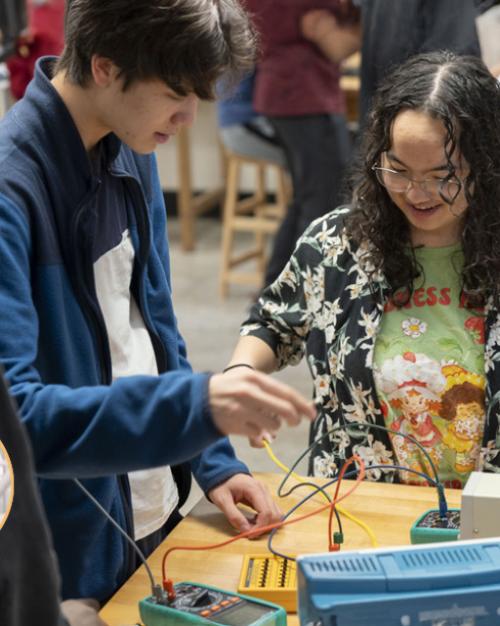Planetary scientist Jonathan I. Lunine, the David C. Duncan Professor in the Physical Sciences and chair of the astronomy department in the College of Arts and Sciences, has been appointed chief scientist of NASA’s Jet Propulsion Laboratory. He will officially assume his role Aug. 16.
As chief scientist, Lunine will guide the laboratory’s scientific research and development efforts, drive innovation across JPL’s missions and programs and enhance collaborations with NASA Headquarters, NASA centers, the California Institute of Technology, academia, the science community, government agencies and industry partners. In addition, he will oversee the formulation of JPL’s scientific policies and priorities and guide the integrity of missions that JPL manages for NASA.
“I’m elated that Jonathan is joining JPL,” said Laurie Leshin, director of JPL. “As chief scientist, he will play a critical role in fostering innovation and excellence, ensuring that JPL remains at the forefront of scientific discovery and innovation as we dare mighty things together.”
Lunine has performed pioneering research on the formation and evolution of planetary systems, the nature of planetary interiors and atmospheres, and where environments suited for life might exist in the solar system and beyond.
“Jonathan has been an outstanding leader for the astronomy department and for the scientific community at large, and we are grateful for all the contributions he has made at Cornell,” said Rachel Bean, interim dean for the College of Arts and Sciences and the Jacob Gould Schurman Professor in the Department of Astronomy. “He goes on to provide strategic leadership to one of the most important institutions in planetary exploration. We wish him the best in this exciting endeavor.”
Lunine joined Cornell’s astronomy department in 2011 and has served as chair for five years; previously, he was director of the Cornell Center for Astrophysics and Planetary Science from 2012-19. He was instrumental in the founding of the Carl Sagan Institute, in the inclusion of Cornell in JPL’s Strategic University Research Partnership Program and in two distinguished postdoctoral fellowship programs with the Heising Simons and Brinson foundations.
“JPL’s portfolio of missions and research projects across the gamut – from our home planet to the solar system, heliosphere, and universe beyond – is an extraordinary resource to the nation,” Lunine said. “I am thrilled to be able to play a leadership role on the science side of this remarkable institution. At the same time, leaving Cornell is bittersweet. I feel most privileged to have been a faculty member at a truly great institution of higher learning, one which has played various important roles in the formation and development of my own career since I first wrote to Carl Sagan as a high school student some 50 years ago.”
Lunine has collaborated with JPL on numerous missions. He was a guest investigator for the ultraviolet spectrometer for the Voyager 2 Neptune encounter, an interdisciplinary scientist on Cassini/Huygens and is co-investigator on the agency's Juno mission to Jupiter and on the Mapping Imaging Spectrometer for Europa instrument for NASA's Europa Clipper mission. He is also a member of the gravity science team for Europa Clipper and the Gravity & Geophysics of Jupiter and Galilean Moons gravity experiment on the European Space Agency Jupiter Icy Moons Explorer mission.
In addition, he served on the science working group as an interdisciplinary scientist and is an interdisciplinary scientist for astrobiology for NASA’s James Webb Space Telescope and has contributed to concept studies for solar system and exoplanet characterization missions. A member of the National Academy of Sciences, he has chaired or co-chaired numerous advisory and strategic planning committees for the Academy, NASA, and the National Science Foundation.
As part of his new role, Lunine has also been appointed professor of planetary science with the Division of Geological and Planetary Sciences at Caltech.
Read this article in the Cornell Chronicle.
Linda B. Glaser is news and public relations manager for the College of Arts and Sciences.




